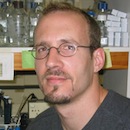Academic Editors
The following people constitute the Editorial Board of Academic Editors for PeerJ. These active academics are the Editors who seek peer reviewers, evaluate their responses, and make editorial decisions on each submission to the journal. Learn more about becoming an Editor.

Thomas D Tullius
Professor of Chemistry, and Director of the Program in Bioinformatics, Boston University. Elected Fellow of the AAAS. Recipient of the Herbert A. Sober Award of the ASBMB. Research interests include developing new chemical probe methods (in particular, hydroxyl radical footprinting) for determining the structure of DNA, RNA, and DNA-protein complexes.

Jianguo Wu
Dean's Distinguished Professor of landscape ecology and sustainability science. Current research areas include landscape ecology, urban ecology, and sustainability science. Editor-in-Chief of Landscape Ecology; Elected AAAS Fellow (2007); Distinguished Landscape Ecologist Award from United States Association for Landscape Ecology (2010); Outstanding Scientific Achievements Award from International Association for Landscape Ecology (2011); Elected Fellow of Ecological Society of America (2019).

Mona Ahmed Hussein
Dr. Mona Ahmed Hussein is an Entomologist and Nematologist, currently working as a Professor of Biological Control at Pests & Plant Protection Dept., Agricultural & Biological Research Institute, National Research Centre, Cairo, Egypt.
She received her B.Sc. from the faculty of Science, Ain Shams University, Egypt. She received a full M.Sc. scholarship from both the United State of America Ministry of Agriculture and the New Mexico State University (NMSU) in the field of Biological Control. She received her Ph.D. degree through scholarship from German Academic Exchange Service (Deutscher Akademischer Austauschdienst DAAD), Germany in corporation with Fac. Science, Ain Shams Univ., Cairo, Egypt.
Prof. Hussein’s work is focused mainly on the production, formulation and field application of the entomopathogenic nematodes and their symbiotic bacteria.

Claire B Paris
Claire Beatrix Paris is a Professor in the department of Ocean Science, University of Miami’s Rosenstiel School of Marine and Atmospheric Science. Director of the Physical-Biological Interactions Lab, she focuses on biophysical dispersion at sea, as well as the transport and fate of pollutants and oil spills from deep-sea blowout. Paris has brought recognition to the key role of behavior of the pelagic larval stage in the connectivity of marine populations and the function of ecosystems.
Paris has developed numerical and empirical tools for her laboratory’s research, both used worldwide: the Connectivity Modeling System (CMS) is an Open-Source Software (OSS) that virtually tracks biotic and abiotic particles in the ocean, and the Drifting In Situ Chamber (DISC) is a field instrument used to track the movement behavior of the early life history stages of marine organisms and detect the signals they use to orient and navigate.

Jürg Bähler
Jürg Bähler is a Professor of Systems Biology at University College London. His laboratory studies genome regulation during cellular proliferation, quiescence, and ageing using fission yeast (Schizosaccharomyces pombe) as a model system. They apply multiple genetic, computational and genome-wide approaches for systems-level understanding of regulatory processes and complex relationships between genotype, phenotype, and environment, including roles of genome variation and evolution, transcriptome regulation, and non-coding RNAs.
Jürg Bähler is an elected Member of the European Molecular Biology Organisation (EMBO) and a Fellow of the Royal Society of Biology, and he received a Wellcome Trust Senior Investigator Award and a Royal Society Wolfson Research Merit Award.

Suresh Gawande
Dr. Suresh Gawande is a Principal Scientist at ICAR-Directorate of Onion and Garlic Research, Pune, India. He obtained his Ph.D. from the Indian Agricultural Research Institute, New Delhi, India in the discipline of Plant Pathology. His areas of interest are genomics of biotic and abiotic stress, host-pathogen-vector interaction of tospoviruses, microbial metagenomics, plant-pathogen diagnostics, mechanism of genetic and induced host plant resistance. Currently, he is working on biotechnological approaches for biotic stress management.

Alexis Verger
Senior Molecular Biologist (CR1 CNRS) at the Interdisciplinary Research Institute (IRI) - Lille 1 University - France.
My lab studies how human genes can be turned on and off by transcription factors. We investigate the fundamental mechanisms underlying specific gene control in the context of diseases, such as cancer.

Huashan Shi
Professor Shi Huashan is an Associate Professor at Sichuan University. His expertise is in the molecular biology of tumours and tumour transcriptomics. He is currently engaged in clinical and basic translational research, including tumour microenvironment and novel immunotherapeutic modalities, and research on the mechanisms and medical applications related to tumour cell vaccines.

Oren Levy
The aim of our research group is to understand the dependency between environmental cues (e.g. light and temperature) that underlie circadian rhythms in symbiotic marine organisms, reef-building corals, in regulating physiology and behavior. Symbiotic corals will serve as a model system to investigate the dependency between two circadian-system associations or non-associations in the simple multicellular organism, on the physiological and molecular levels.

Jerson L. Silva
Professor of Biochemistry in the Institute of Medical Biochemistry at Universidade Federal do Rio de Janeiro. Awards include Fellow of the John Simon Guggenheim Foundation, TWAS Prize in Biology. Member of the Brazilian Academy of Sciences; the National Academy of Medicine; and Fellow of the Academy of Sciences for the Developing World (TWAS). Director of the Jiri Jonas National Center for Nuclear Magnetic Resonance (UFRJ)

Jacqueline Batley
Professor in the School of Biological Sciences, University of Western Australia. I hold an Australian Research Council Future Fellowship. Research interests include plant-pathogen interactions, crop genetics and genomics, genome sequencing, Brassicas, structural variation, diversity genomics, methylation

Graham P Wallis
Professor in Genetics, University of Otago. Past Vice-President, Society for the Study of Evolution. Past Convenor of EEB Panel, Marsden Fund, New Zealand. Past Marsden Fund Council Member. Associate Editor: Pacific Conservation Biology. Past Associate Editor: Evolution, Molecular Ecology. Temminck Fellow, National Museum of Natural History, Leiden, 2008, 2011. Research Interests: hybrid zones, biogeography, molecular evolution, molecular systematics, conservation genetics. Current projects: Adaptive evolution of a larval glycoprotein in galaxiid fishes (with Luca Jovine, Karolinska Institutet); New Zealand biogeography (with Jon Waters & Dave Craw, Otago); Minimising adaptation to captivity for conservation of threatened species (with Catherine Grueber, Univ Sydney); Molecular systematics of European newts (with Pim Arntzen, National Museum of Natural History, Leiden)

